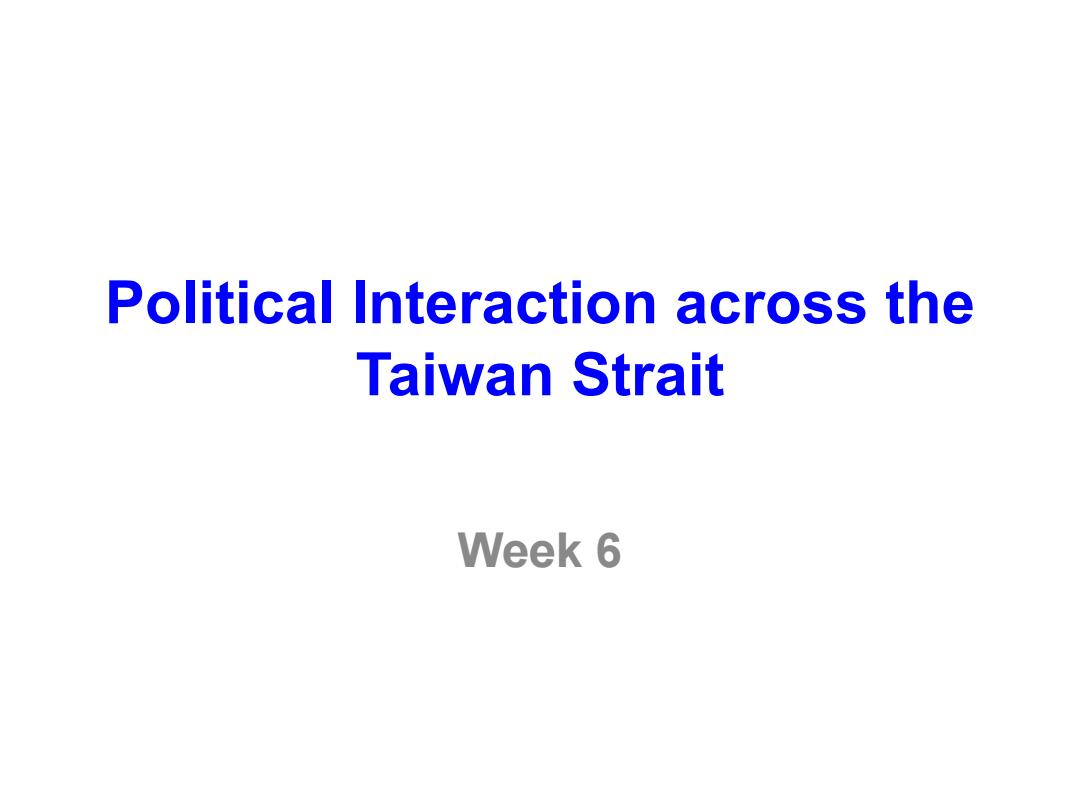
Political Interaction across the Taiwan Strait Week 6
Political Interaction across the Taiwan Strait Week 6

Outline 。Introduction Lee Teng-hui's Policy to the Mainland Chen Shui-bian's Mainland Policy Ma Ying-jeou's Mainland Policy Hu's Six Points:A Framework of peaceful development
Outline • Introduction • Lee Teng-hui’s Policy to the Mainland • Chen Shui-bian’s Mainland Policy • Ma Ying-jeou’s Mainland Policy • Hu’s Six Points: A Framework of peaceful development
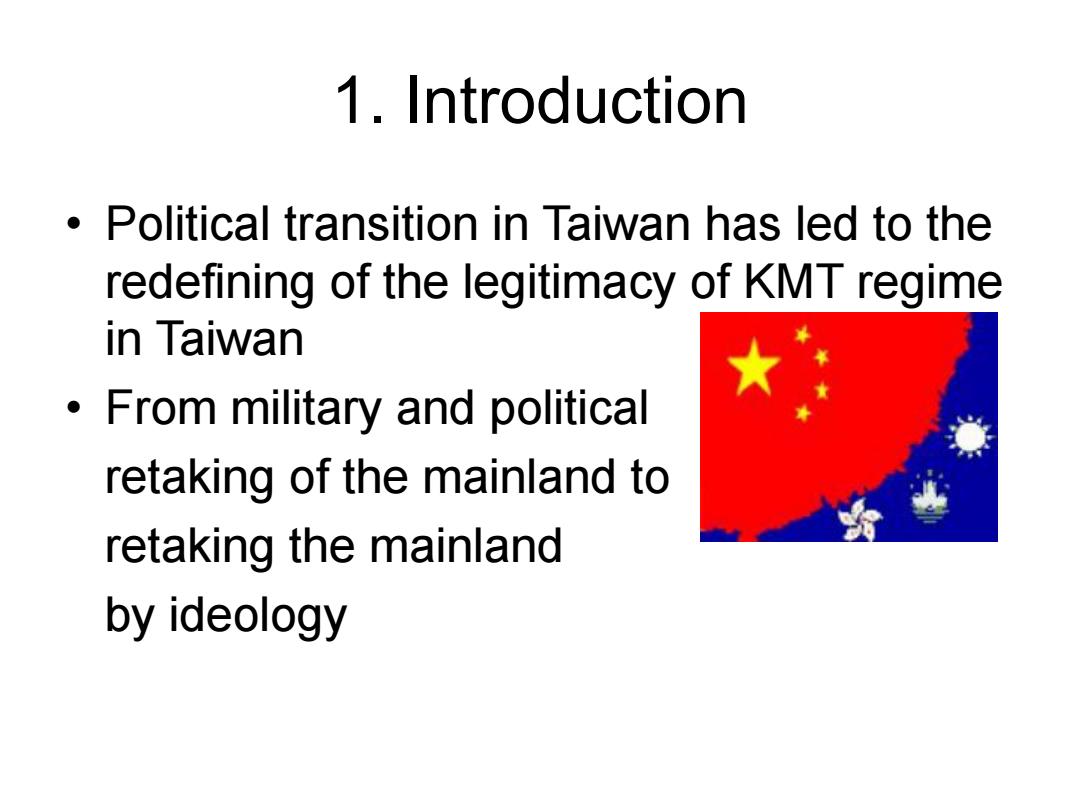
1.Introduction Political transition in Taiwan has led to the redefining of the legitimacy of KMT regime in Taiwan From military and political retaking of the mainland to retaking the mainland by ideology
1. Introduction • Political transition in Taiwan has led to the redefining of the legitimacy of KMT regime in Taiwan • From military and political retaking of the mainland to retaking the mainland by ideology
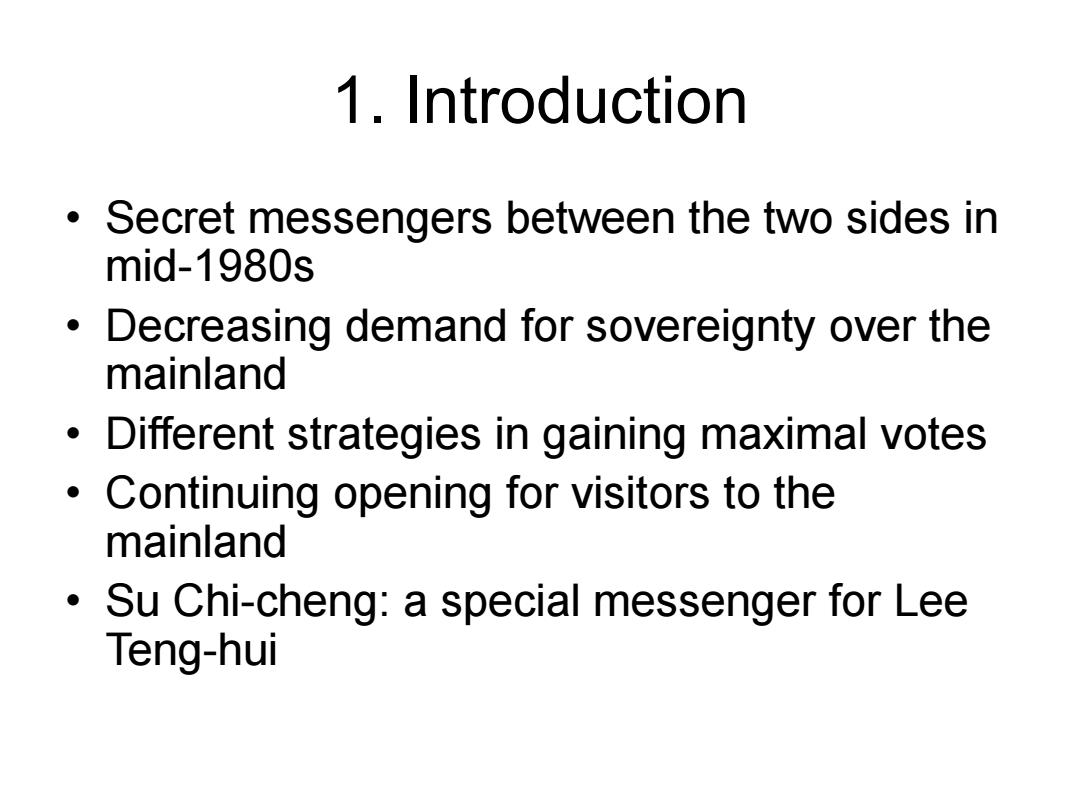
1.Introduction o Secret messengers between the two sides in mid-1980s Decreasing demand for sovereignty over the mainland Different strategies in gaining maximal votes Continuing opening for visitors to the mainland ● Su Chi-cheng:a special messenger for Lee Teng-hui
1. Introduction • Secret messengers between the two sides in mid-1980s • Decreasing demand for sovereignty over the mainland • Different strategies in gaining maximal votes • Continuing opening for visitors to the mainland • Su Chi-cheng: a special messenger for Lee Teng-hui
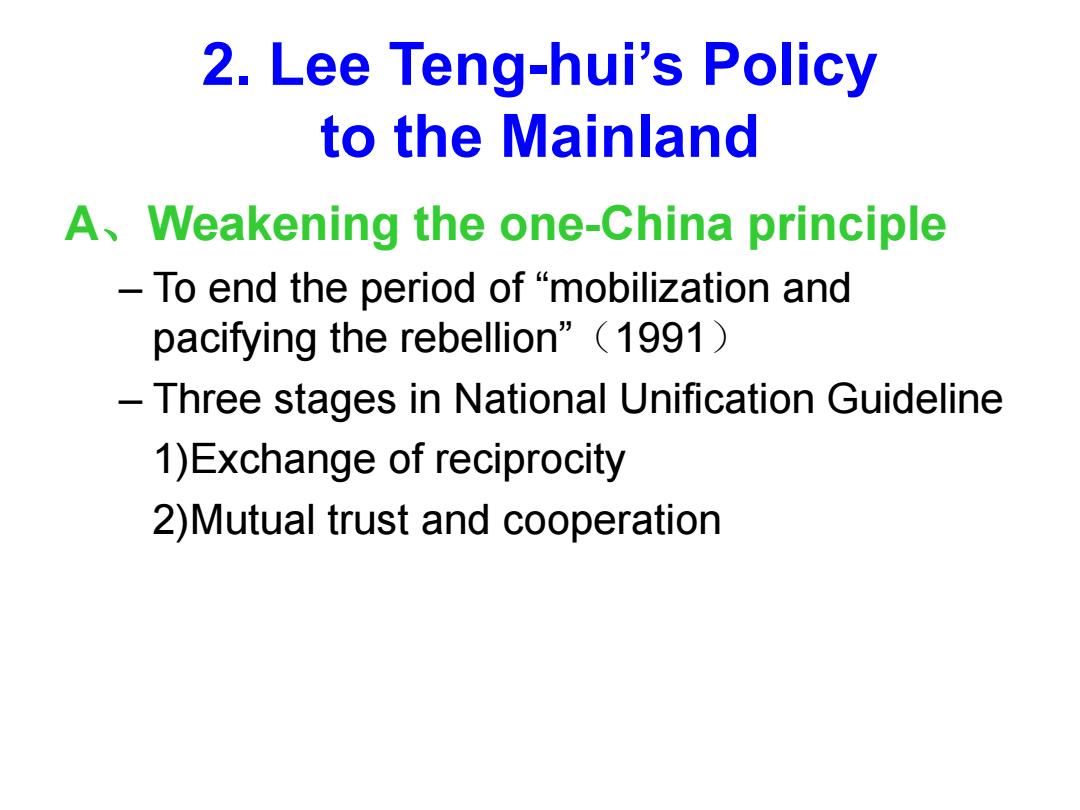
2.Lee Teng-hui's Policy to the Mainland A.Weakening the one-China principle To end the period of "mobilization and pacifying the rebellion"(1991) Three stages in National Unification Guideline 1)Exchange of reciprocity 2)Mutual trust and cooperation
2. Lee Teng-hui’s Policy to the Mainland A、Weakening the one-China principle – To end the period of “mobilization and pacifying the rebellion”(1991) – Three stages in National Unification Guideline 1)Exchange of reciprocity 2)Mutual trust and cooperation
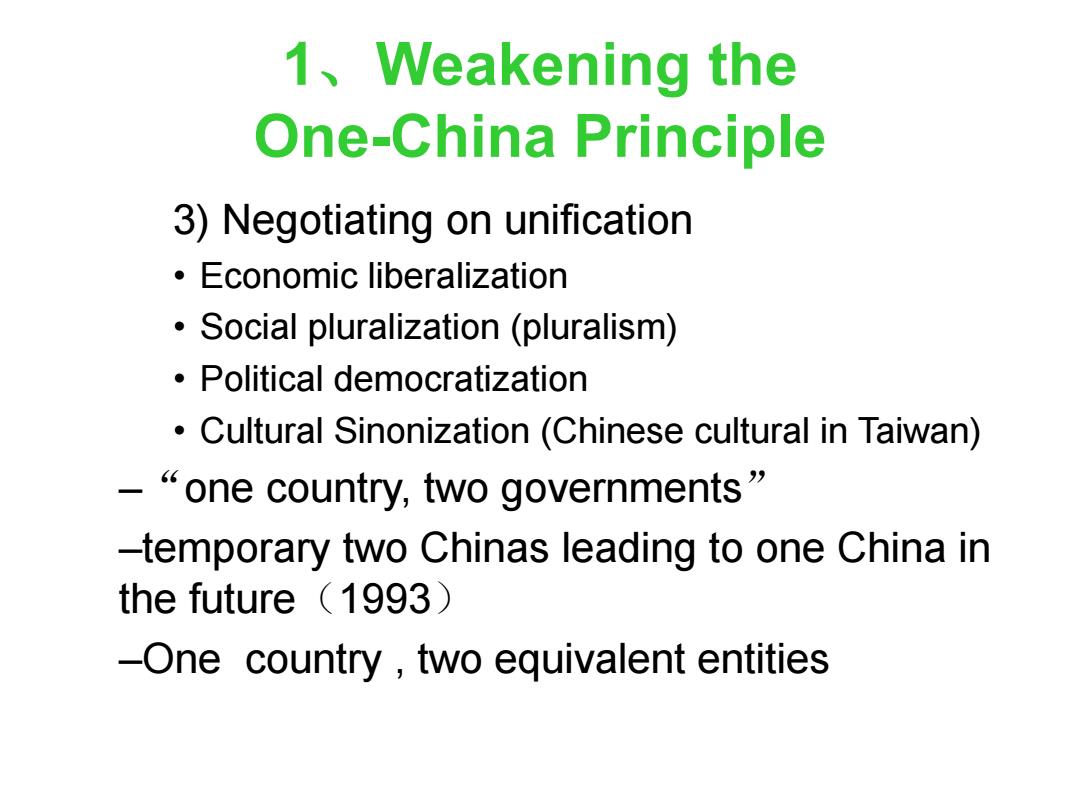
1、Veakening the One-China Principle 3)Negotiating on unification Economic liberalization Social pluralization (pluralism) Political democratization Cultural Sinonization (Chinese cultural in Taiwan) -“one country,.two governments” -temporary two Chinas leading to one China in the future (1993) -One country two equivalent entities
1、Weakening the One-China Principle 3) Negotiating on unification • Economic liberalization • Social pluralization (pluralism) • Political democratization • Cultural Sinonization (Chinese cultural in Taiwan) –“one country, two governments” –temporary two Chinas leading to one China in the future(1993) –One country , two equivalent entities
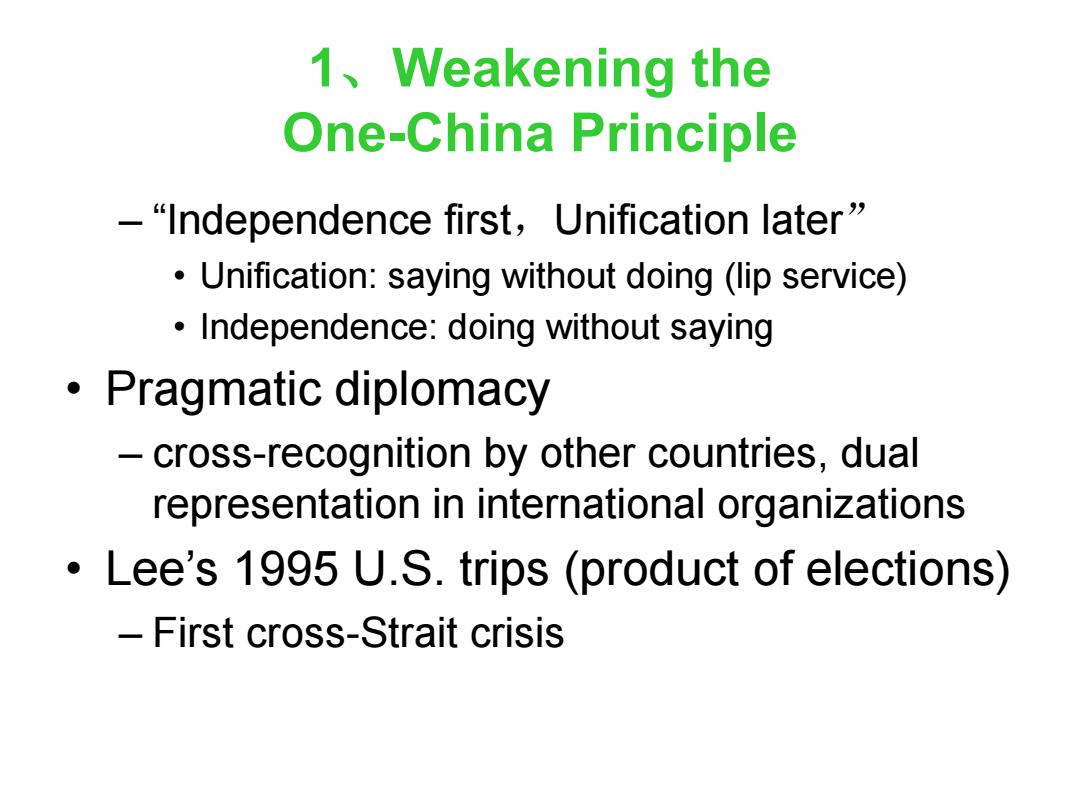
1、Veakening the One-China Principle -“Independence first,.Unification later” Unification:saying without doing (lip service) Independence:doing without saying ·Pragmatic diplomacy cross-recognition by other countries,dual representation in international organizations Lee's 1995 U.S.trips (product of elections) -First cross-Strait crisis
1、Weakening the One-China Principle – “Independence first,Unification later” • Unification: saying without doing (lip service) • Independence: doing without saying • Pragmatic diplomacy – cross-recognition by other countries, dual representation in international organizations • Lee’s 1995 U.S. trips (product of elections) – First cross-Strait crisis
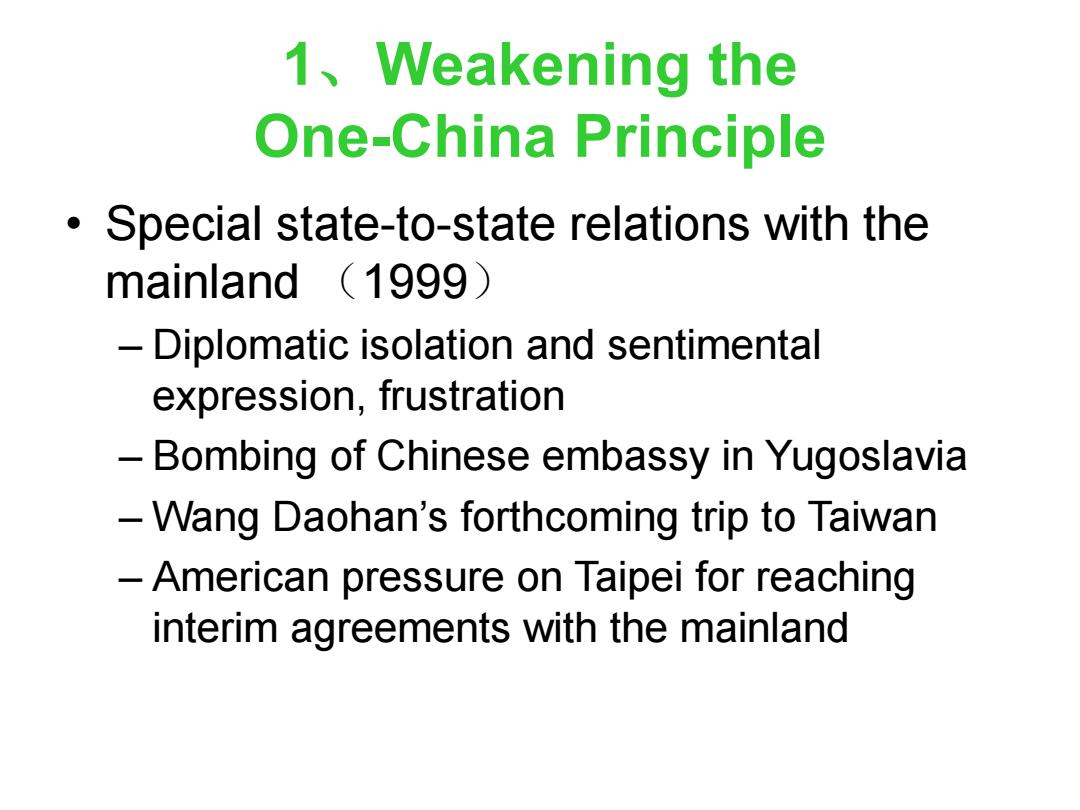
1、Veakening the One-China Principle Special state-to-state relations with the mainland (1999) -Diplomatic isolation and sentimental expression,frustration Bombing of Chinese embassy in Yugoslavia Wang Daohan's forthcoming trip to Taiwan American pressure on Taipei for reaching interim agreements with the mainland
1、Weakening the One-China Principle • Special state-to-state relations with the mainland (1999) – Diplomatic isolation and sentimental expression, frustration – Bombing of Chinese embassy in Yugoslavia – Wang Daohan’s forthcoming trip to Taiwan – American pressure on Taipei for reaching interim agreements with the mainland
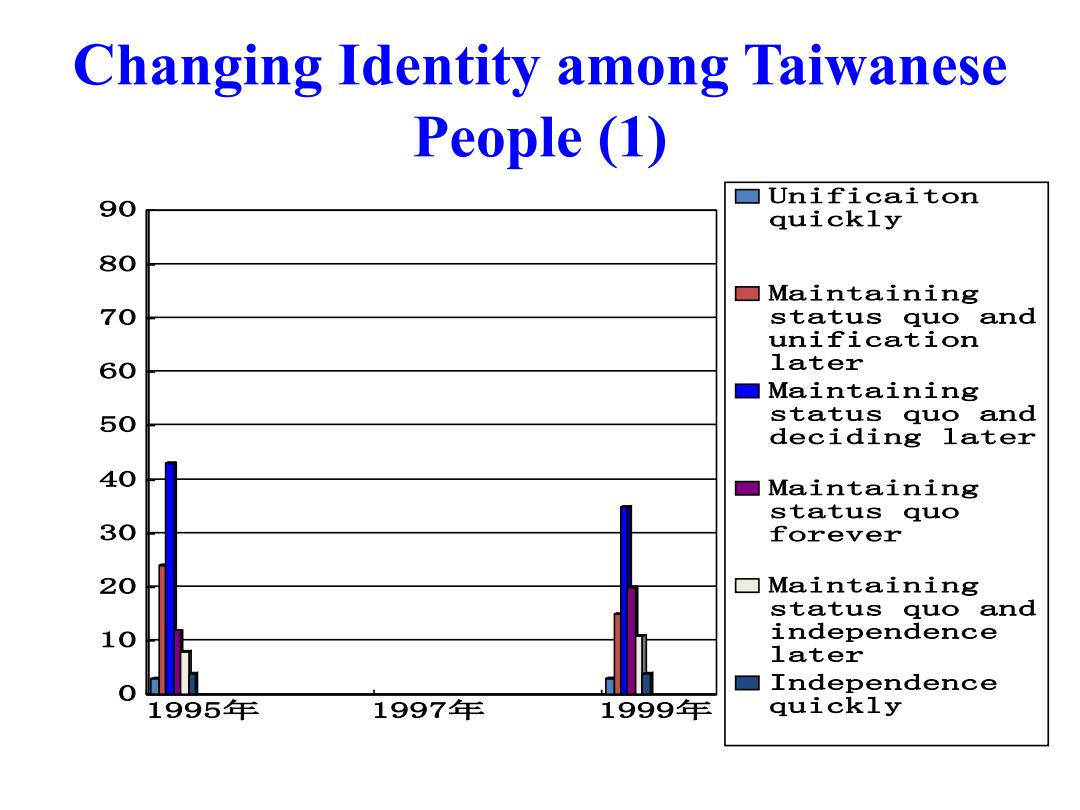
Changing Identity among Taiwanese People (1) 90 □Unificaiton quickly 80 □Maintaining 70 status quo and unification 60 later ■Maintaining 50 status quo and deciding later 40 ☐Maintaining status quo 30 forever 20 □Maintaining status quo and independence later 0 Independence 1995年 1997手 1999年 quickly
Changing Identity among Taiwanese People (1) 0 10 20 30 40 50 60 70 80 90 1995年 1997年 1999年 Unificaiton quickly Maintaining status quo and unification later Maintaining status quo and deciding later Maintaining status quo forever Maintaining status quo and independence later Independence quickly
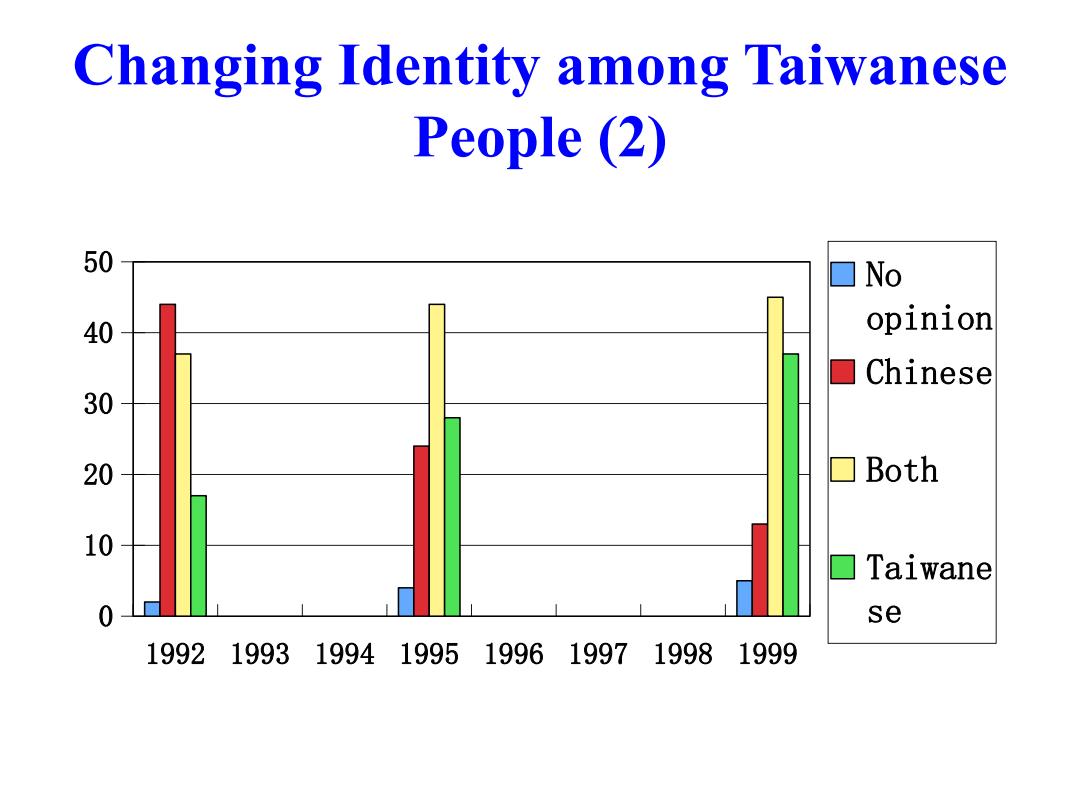
Changing Identity among Taiwanese People (2) 50 □No 40 opinion Chinese 30 20 □Both 10 Taiwane 0 se 1992199319941995199619971998 1999
Changing Identity among Taiwanese People (2) 0 10 20 30 40 50 1992 1993 1994 1995 1996 1997 1998 1999 No opinion Chinese Both Taiwane se